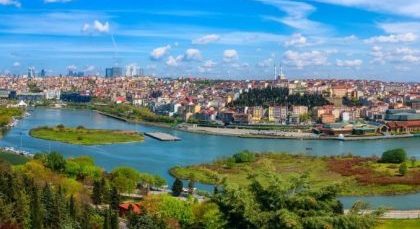The OECD report
The OECD report on the global plastics outlook provides an up-to-date overview of the current state of plastic production, plastic waste generation and leakage into the environment. It also aims to inform and support ongoing policy efforts to reduce negative environmental impacts along the plastic value chain. The report highlights the messages critical to an in-depth understanding of current challenges and effective action.
One of the main findings of the OECD’s report shows that global plastic waste generation more than doubled from 2000 to 2019 to 353 million tons.
During the OECD’s March 2022 environment meeting, the ministers and high-level representatives from the OECD’s 38 member countries and the European Union, as well as Bulgaria, Croatia, Peru and Romania, committed in a formal OECD declaration to intensify their work on climate and the environment. The main theme of the meeting was “Ensuring a Resilient and Healthy Environment for All.” Within these efforts, they decided to consider actions such as doing more to reduce biodiversity loss, addressing plastic pollution, aligning finances with environmental targets and accelerating climate change action to limit temperatures rising above 1.5 degrees Celsius (2.7 degrees Fahrenheit).
In the declaration adopted at the end of the meeting, the ministers committed to the issues mentioned below:
- Developing and implementing effective and ambitious environmental and climate strategies aimed at achieving net-zero greenhouse gas emissions by 2050, including through accelerated action in this critical decade with a view to keeping the limit of a 1.5 degrees Celsius temperature increase within reach
- Strengthening efforts to align COVID-19 recovery plans with environmental and climate goals to build a green, inclusive and resilient recovery for all
- Developing comprehensive and coherent life cycle approaches to tackle plastic pollution and promoting robust engagement in the INC to develop an internationally legally binding instrument on plastic pollution with the ambition of completing negotiations by the end of 2024
During the OECD meeting, Turkey’s local policy intervention priorities to stop plastic pollution and promote more sustainable design that minimizes environmental and human health impacts at the same time were outlined.
- In 2017, under the auspices of first lady Emine Erdoğan, the Zero Waste campaign was initiated, aiming to increase the recovery rate of municipal waste from 22.4% to 35% by 2023
- A cumulative 65% reduction in the use of plastic bags has been achieved after introducing a charge for plastic bags launched in 2019
- Mandatory use of wastes or materials recycled from waste has been enacted by the Environmental Law
- Compulsory deposit return system studies have been started for beverage packaging
- Preparation of the national circular economy action plan has started and the studies on single-use plastics will commence within this framework
In addition, by emphasizing the role of the OECD in international cooperation, the reason the OECD was established and the basis of its successful work will ensure the highest sustainable economic growth and employment, raise the standard of living in member countries and thus contribute to the development of the world economy, in member and non-member countries. It was stated that multilateral world trade is to grow in line with international obligations by contributing to healthy economic development and maintaining financial stability.
In this context, it was stated that the OECD representatives in member and target countries can encourage them to prioritize the needs of countries in line with the OECD work area for future studies, and it is considered beneficial to produce reference reports by the OECD, to continue project design and similar assistance, and to conduct peer-to-peer analysis.
With the Zero Waste Project, which was mentioned in detail above, Turkey is actively preventing plastic pollution. In addition, the country closely follows national and international developments.
On the other hand, Turkey has started a new project as it would be unprepared in the fight against plastics without the circular economy model. The “Technical Assistance Project for the Evaluation of Turkey’s Potential for Transition to a Circular Economy,” which is supported by the European Union’s Instrument for Pre-Accession Assistance (IPA) fund and benefits the Ministry of Environment, Urbanization and Climate Change, was initiated in February 2022 and the project duration is three years.
The main objective of the project is to encourage the transition to a circular economy that also contributes to more efficient resource and waste management throughout Turkey while strengthening its institutional and technical capacity in transition to a circular economy in line with the EU circular economy package. The project also aims to analyze Turkey’s potential for transition to a circular economy on the basis of the EU circular economy package and to develop a comprehensive national strategy and action plan in line with the EU package.
As the requirements of the EU Plastics Strategy require some regulatory changes within the scope of the project, a regulatory impact analysis will be conducted to adapt to the requirements in Turkey. The regulatory impact analysis will specifically include single-use plastics.
With the project, a potential road map specific to Turkey will also be developed, including the necessary actions for single-use plastics and marine litter, and the timetable for implementation, in line with the EU Plastics Strategy and Single-Use Plastics Directive. A public survey will be prepared on microplastics and restrictions on single-use plastics.
As a result, Turkey fully believes that it will achieve successful results in the fight against plastic pollution with the studies, projects and plans it has prepared for the future.
BY MEHMET EMIN BIRPINAR – SADIYE BILGIÇ KARABULUT



